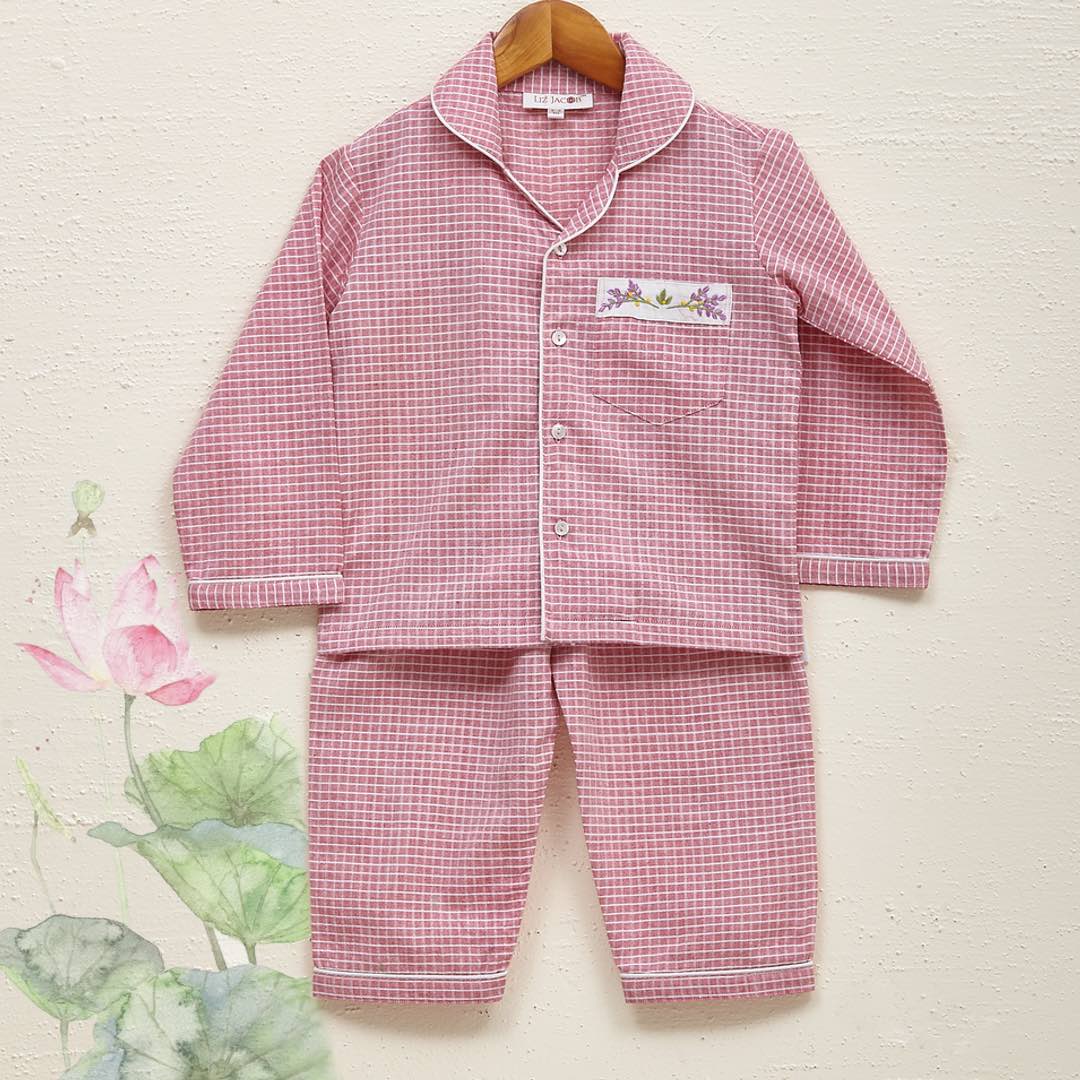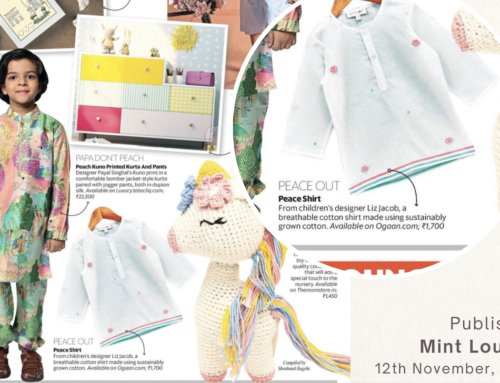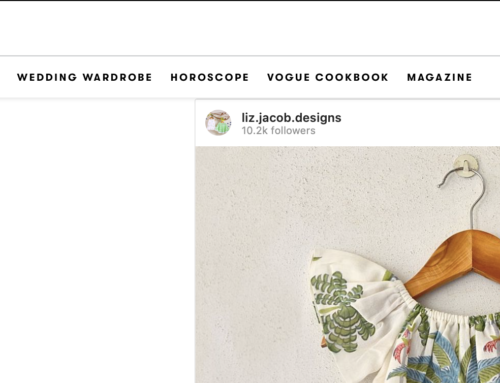Liz Jacob is an artistic line of sustainable clothing for little children crafted out of natural fabrics such as pure cottons, organic cottons, and linens. Founded in 2014, the brand has come a long way from being a small homegrown hand-painted line of clothes to a more established player in the niche, handcrafted and ‘responsible fashion’ segment. Liz Jacob is the creative expression of designer Elizabeth Jacob (Liz) whose aesthetics naturally lean towards understated, simplistic elegance and fresh pastel palettes.

Elizabeth Jacob, founder of Liz Jacob
According to Elizabeth Jacob, founder of Liz Jacob, “Customers are so evolved these days and many do care about our sustainability narrative. Some are ready to pay a premium for organic cottons but yes, the majority is still yet to make that transition. That behavioral shift needs to be responsibly promoted by multiple influencers on social media and mainstream media, who should actively take up this cause. The ethos of our brand is built on sustainable and ethical trade practices that focus on reducing wastage of all resources, supporting grassroots level artisans, and promoting only sustainable, natural fabrics, especially local textiles.”
As about the environmental impact of the fashion industry and the manufacturing of textiles and the much needed positive change that fashion companies need to pledge to bring about, she says “an alarming increase of pests and their increasing resistance to pesticides suggest a higher usage of stronger pesticides which is stripping the land’s natural fertility. This is not sustainable in the long run and as conscious customers, we need to slam the brakes when it comes to rapid consumption. This effect is catastrophic for the fashion industry as well as for the environment. Circularity in fabric as well as fibre should become a key business vision for companies and individuals. Game changing organizations like the Organic and Fair-trade Cotton Secretariat (OFCS) and OCA (Organic Cotton Accelerators) are now working together with farmers to make a positive change. Fashion brands should join hands with these industry bodies and source their cotton responsibly, rather than blindly depend on organic certification claims made by many retailers. As a small boutique player, we are also trying to deliver on this objective and bring about this change.”
Founded in 2014, Liz Jacob is an artistic line of sustainable clothing for little children crafted out of natural fabrics such as pure cottons, organic cottons, and linens.
Fashion meets sustainability: Sustainable Revolution in Fashion
Also because of the advent of ecommerce and being well-informed in the past decade, the Indian consumer have more often than not been buying apparels that are not only high on fashion or is trendy, but also, pretty high on the ‘sustainable’ factor. The increasing importance of sustainable and transparent supply chains are clear trends affecting the buying habits of consumers.
To ensure that the fashion sector incorporates sustainability with regard to social aspects, economic dependencies and ecological sensitivities, right from the outset, there are now different brands coming up in the fashion sector which are pledging to use only sustainable materials in the textile manufacturing. This is the new initiative launched by Sustainable Revolution championed by Union Minister for Textiles Smriti Zubin Irani which aims to move towards sustainable fashion that contributes to a clean environment.
Project SU.RE (sustainable resolution) involves 16 leading retail fashion brands like Future Group, Shoppers Stop, Aditya Birla Retail, Arvind Brands, Lifestyle, Max, Raymond, House of Anita Dongre, Westside, Spykar, Levis, Bestsellers and Trends as signatories. These brands have committed to source a significant portion of their total consumption using sustainable raw materials and processes by 2025. It is one of the most responsible and timely step taken by the apparel industry of India, and these brands to commit to move towards sustainable fashion.
According to Elizabeth Jacob, founder of Liz Jacob, “The ethos of our brand is built on sustainable and ethical trade practices… and promoting only sustainable, natural fabrics, especially local textiles.”












Leave A Comment